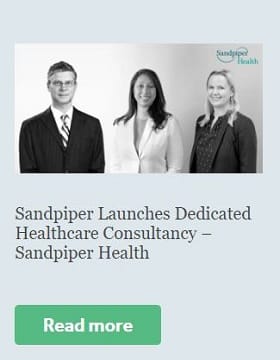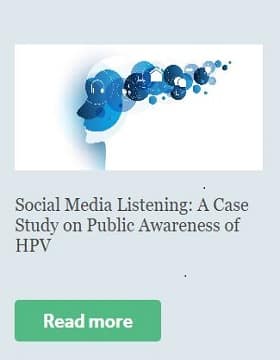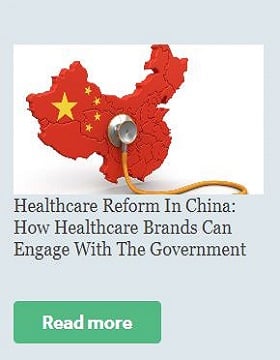
Sandpiper Communications Appoints Kim Spear as Director in Hong Kong to Grow Financial and Professional Services Sectors

Thinking beyond media coverage as the only metric of PR success
Vaccine Hesitancy In Asia: How Comms Can Play A Major Role
13 July 2021
Beyond Carrots and Sticks: How to overcome vaccine hesitancy in Asia and beyond
by Saskia Kendall, Director – Health, Sandpiper Communications. Saskia is passionate about healthcare communication and advocacy. With more than 14 years of experience working for healthcare companies, public bodies and charities, Saskia works across public affairs, policy, media, social media and internal communications.
What works better at improving vaccine uptake in Asia – the carrot or the stick? This debate has been raging in various parts of the region over the last few months as incentives and penalties are implemented in markets. Headline-grabbing glitzy incentives like a multi-million-dollar Hong Kong apartment and threats of restrictions for the unvaccinated are being tested in markets in the region but are we testing the right thing? With the delta variant challenging even the most resilient anti-COVID measures and new lockdowns taking a heavy burden, should we instead be figuring out the best way to engage people in overcoming an urgent public health crisis that everyone is affected by?
For some, incentives will likely be enough to persuade them to get the jab, and certainly we have seen an increase in daily vaccination rates in places like Hong Kong where they have been offered. However, the ‘carrot’ and the ‘stick’ fundamentally fail to address the complex reasons and root causes of vaccine hesitancy, which can only be overcome by engaging people on an emotional level, building trust and providing reassurance in a way that changes mindsets.
Interestingly, the drivers of vaccine confidence are similar to those that drive distrust in them.
Both sides of the pro-vax and anti-vax campaigns cite concerns about safety and remaining healthy, which is fundamentally rooted in emotion. Healthcare bodies, the medical and scientific community and government organisations often try to combat these strong emotions using scientifically-proven facts and research to help people understand that their perceptions are incorrect. This is important and challenging misinformation is vital but is only part of the solution and doesn’t recognise how we engage with information and form opinions. And for the majority of the population in Asia, scientific jargon like ‘efficacy’ and ‘well-tolerated’ can be confusing and hard to understand, and may not even fully understand what percentages mean. Messages should focus on vaccines preventing serious illness and death while being shown to be safe. Finding different ways to say the same thing, through different channels and with a variety of partners is important. And changing the focus from one of science to one of inspiration that emotionally resonate for people recognising the the reasons for their hesitancy.
The reasons for distrust in vaccines are complex and differ across Asia.
Bad experiences of other vaccination programmes, underlying distrust of authorities and governments and vocal anti-vaccination advocates are just some of the drivers behind this. The vast majority of information consumed in many countries in Asia is found online, either through search engines or social media. In the information age, people tend to seek out and share information that incites a strong emotional reaction, but unfortunately this does not always mean that it is true. People share the thing that makes them feel shocked, angry or laugh, but mostly they share things that align with their deeply-held beliefs about the world on some level. Relying on emotions to decide what is true, or ‘going with your gut’, often reinforces existing opinions rather than helping people find the truth, make informed decisions and potentially shape new opinions.
Changing mindsets from distrust and concern to ones of trust and confidence is a challenging and nuanced task that takes time.
It’s crucial to first recognise that the underlying concerns are valid, every health intervention has an inherent risk attached, even the most long-established, over-the-counter pain relief. So there is always a risk-benefit analysis in every health decision we make. So on some level, concern and gathering information to make decisions about being vaccinated are a positive thing. However, when something is so high profile as the vaccine roll-outs happening worldwide, intense media interest in every potential adverse event can paint a picture in people’s minds that the danger is far greater than the reality. Ensuring that positive stories, which represent the vast majority of experience for people being vaccinated, are being told and shared as well is vital to countering this focus on the negative. This can be through social media whether it is through influential figures or by people generally sharing their own experiences of being vaccinated and what they hope it will achieve, or through launching new initiatives in the media. A focus on personal experience is important, which can be supported by the facts.
The other part of the narrative
It’s important to highlight what we are trying to overcome with the vaccination drive. COVID-19 has not just caused a huge human toll affecting health and causing the death of millions worldwide, it has also affected economies, restricted movement, overwhelmed healthcare services, stifled children’s education and affected people’s mental wellbeing. By telling the story of life beyond COVID-19 in many different but consistent ways, we can help people envision a hopeful world beyond the pandemic and this will be crucial for changing mindsets. Any campaigns developed should recognise what is happening in local markets and what has been the impact so that can reflect people’s concerns and hopes for the future in a compelling way.
The war on COVID-19 will not be won through carrots and sticks, although these are likely to help round the edges for people who are on the fence. The key to building lasting trust and confidence will be through a consistent and clear narrative and by sharing information and updates in a way that allays people’s emotional concerns. This requires a concerted and multi-channel effort from trusted healthcare bodies, medics and scientists, but also requires broader support from the average person in the street and other high profile individuals. By adding more voices to support and challenge misinformation whether on social media or in the media, and by sharing information in a way that is relatable and relevant for the population, we may well see the needle move on the jab.
Sandpiper specialises in strategic health education planning and implementation of public health education campaigns in the ASEAN region. We take an evidence-based approach to developing reputations, educating healthcare professionals and influencing the right people in order to deliver impactful outcomes. For more information on our approach, contact us.
You may also like:




